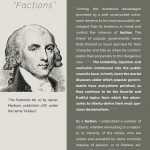Last Updated on October 3, 2021 by Constitutional Militia
MODEL CONGRESSIONAL ACT FOR THE PROTECTION OF PERSONS WHO RECEIVE AND PAY VARIOUS FORMS OF UNITED STATES COIN AND CURRENCY Download
One of the major hurdles to true monetary reform—that is, making United States silver and gold coinage readily available for WE THE PEOPLE’S use as actual currency in day-to-day transactions—is the perverse practice of various agencies of refusing to treat the monetary value of United States gold and silver coinage as the face values of the coins, as given by Congress, but instead purporting to “revalue” these coins at their market exchange-rates with Federal Reserve Notes. So that, for example, a “$50” American Eagle gold coin is treated as if its monetary value were (as of today) somewhere around “$1,500”. In principle, the States should not be able to do this because, perforce of Article I, Section 8, Clause 5, Article I, Section 10, Clause 1, and Article VI, Clause 2 of the Constitution, the States have no authority to “regulate the Value” of United States coins and currency, or to declare that one form of such coin or currency is the standard of monetary value to the exclusion of all others. And no mere agency of the General Government should be able to engage in such “revaluation”, either, because Congress has set the monetary value of such coins by giving them specific face values. Indeed, the Supreme Court has admitted that even it—as a branch of the General Government co-equal with Congress—has no authority to disregard the specific monetary values that Congress has set on coins and paper currency. See Thompson v. Butler, 95 U.S. 694 (1878). The model bill set out below corrects that problem.
Inasmuch as the Supreme Court has already definitively ruled on this matter, the bill should be “noncontroversial”.
Under present conditions, it is also absolutely necessary.
I am posting this material as a public service in the hope that hundreds and even thousands of Americans will propose this model to their Representatives and Senators in Congress as a first step in returning this country to a semblance of sound money before the collapse of the Federal Reserve System throws the economy into possibly irremediable chaos.
With minor amendments obvious to anyone, this model can easily be adapted for use as a State statute, too.
Please make good use of it.
MODEL CONGRESSIONAL ACT FOR THE PROTECTION OF PERSONS WHO RECEIVE AND PAY VARIOUS FORMS OF UNITED STATES COIN AND CURRENCY
Public Law ___-___ ___ Congress
An Act
To enounce the rights of all persons to receive and pay all forms of United States coin and currency as their face values without discrimination or burden; to effectuate the monetary powers and disabilities of Article I, Section 8, Clauses 3 and 5 and Article I, Section, 10, Clause 1 of the Constitution of the United States; to ensure the supremacy of the laws of the United States under Article VI, Clause 2 of the Constitution; to enforce privileges and immunities, and rights of due process and equal protection, protected by Sections 1 and 5 of the Fourteenth Amendment to the Constitution; and to confirm and apply by statute the rule of monetary valuation upheld in the Supreme Court’s decision in Thompson v. Butler, 95 U.S. 694 (1878).
Be it enacted by the Senate and House of Representatives of the United States of America in Congress assembled,
SECTION 1. For the purposes of this Act, “United States coin and currency” shall include
(a) all coins of silver, gold, or base metals, and
(b) all paper currency,
of whatever kind, nature, and description, minted, coined, issued, or emitted by the United States, or authorized to be issued or emitted by any other individual, person, or entity, at any time under any of the laws of the United States.
SECTION 2. Where the amount of any tax, excise, fee, assessment, or other public charge or due of the United States or of any State or political subdivision thereof arising out of or in consequence of or in relation or with respect to any transaction or activity of an individual, partnership, corporation, or other person or entity, whether denominated a tax, excise, fee, assessment, or other public charge or due on “income”, “sales”, “gross receipts”, or otherwise, shall be calculated on the basis of or otherwise depend upon the value of any coin or currency of the United States received or paid out in that transaction or activity by the individual, partnership, corporation, or other person or entity liable for such tax, excise, fee, assessment, or other public charge or due, no public officer, agency, employee, or other individual, person, or entity exercising any authority of the United States or of any State or political subdivision thereof shall use as the basis for such calculation, assessment, levy, or collection any value other than the face value of the coin or currency received or paid out.
SECTION 3. Any individual who shall violate SECTION 2 of this Act shall be civilly liable to the individual, partnership, corporation, or other person or entity upon or from whom the tax, excise, fee, assessment, or other charge or due has been assessed, demanded, levied, collected, ordered, or made the subject of any judgment or like action, and upon the proof of such assessment, demand, levy, collection, order, judgment, or like action shall be subject to a judgment, in his individual capacity, for
(a) restitution to the complaining party of any tax, excise, fee, assessment, or other charge or due the same has been assessed, has paid, has otherwise delivered, or has suffered to be taken from him, plus adequate interest from the date of assessment or other loss; and
(b) damages of ten (10) times the tax, excise fee, assessment, or other charge or due assessed, demanded, levied, collected, ordered, or adjudicated, or $5,000, whichever is greater, the same to be imposed for each transaction subjected to such tax, excise, fee, assessment, or other charge or due.
Provided, that if the tax, excise, fee, assessment, or other charge or due has been collected and paid in to any public treasury, office, or fiscal agent of the United States or of any State or political subdivision thereof, upon order of the court hearing the case it shall be returned to the complaining party, and such payment shall be credited against the restitution required under subsection (a) of this SECTION. For the purposes of this proviso, the court hearing the cause shall have jurisdiction to join as parties defendant public officials having authority to order and effect the disbursement of funds held in or by such public treasury, office, or fiscal agent.
Provided further, that no portion of any damages imposed upon any individual found liable under this Act shall be paid by any public treasury, office, fiscal agent, or other authority of the United States or of any State or political subdivision thereof; nor shall any such public treasury, office, fiscal agent, or other authority reimburse or make whole any individual against whom a judgment shall be entered under this Act, either directly or through insurance, guarantee, surety, or any other third-party payment, for any portion of restitution or damages imposed upon such individual.
SECTION 4. The District Courts of the United States, situated in any State in which any claim under this Act shall arise, shall have jurisdiction to hear and decide all cases and controversies arising under this Act, and may grant whatever relief, including declaratory judgments, mandatory injunctions, and writs of mandamus or prohibition, as may be necessary and proper in addition to (but not in lieu of) any other relief specified in this Act.
SECTION 5. In any civil action brought pursuant to this Act, the court shall allow no defense of official immunity, whether absolute, qualified, or of any other character or type whatsoever. All individual defendants and attorneys asserting any such defense shall be subject to such sanctions under Federal Rule of Civil Procedure 11 as the court shall adjudge proper, to be entered jointly and severally against them. Payment of such sanctions shall be governed by the rule set out in the second proviso to SECTION 3 of this Act.
©2011 Edwin Vieira, Jr. – All Rights Reserved.




































